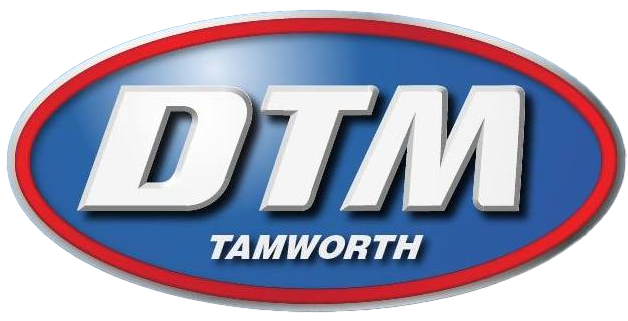Understanding the Battery Lifecycle of Electric Golf Carts
DTM Tamworth • July 10, 2025
Whether you're running a resort fleet or cruising the course on weekends, electric golf carts offer a clean, quiet, and efficient way to get around. But at the heart of every electric cart is its battery—a vital component that determines performance, reliability, and running costs over time.
In this blog, we’ll explain what you need to know about the golf cart battery lifecycle, what affects it, and how users of golf carts in Tamworth and surrounding areas can get the most out of their investment.
What Is the Average Battery Lifespan?
Most electric golf carts use deep-cycle lead-acid or lithium-ion batteries. Each has a different life expectancy depending on usage, environment, and care.
Average lifespan estimates:
- Lead-acid batteries: 4 to 6 years
- Lithium-ion batteries: 8 to 12 years
These figures vary depending on usage conditions. For example, commercial fleets used daily may need battery replacement sooner than private carts used weekly. Understanding how you operate your cart is essential in estimating battery longevity.
Key Factors That Affect Battery Life
Battery performance isn't just about age. Several conditions influence how long your battery remains effective.
Frequency of Use
High-use carts, such as those in hospitality or golf fleets, typically go through more charge cycles, accelerating battery wear. Conversely, batteries in less frequently used carts can degrade if left idle for long periods without charging.
Charging Practices
Poor charging habits can shorten battery life. Overcharging, undercharging, or using incompatible chargers can all cause premature wear. Always follow manufacturer guidelines and avoid "topping off" charges unnecessarily.
Terrain & Load
Operating in hilly areas or carrying heavy loads requires more energy, placing added strain on the battery. If your golf carts in Tamworth regularly navigate slopes or transport multiple passengers, battery life may be reduced unless systems are designed to accommodate this demand.
Weather & Storage Conditions
Extreme heat or cold affects battery chemistry and performance. In regions like Tamworth, where summers can be intense, it’s important to store carts in shaded or covered areas to protect battery health.
Signs Your Golf Cart Battery Is Nearing the End of Life
Recognising when a battery is no longer performing as it should is key to maintaining safety and efficiency.
Common indicators:
- Reduced range or frequent recharging
- Sluggish performance or reduced power on inclines
- Battery takes longer to charge
- Visible corrosion or swelling on terminals
- Unusual odours from the battery compartment
If you're noticing any of these signs in your fleet or personal cart, it's time to consult a professional before performance declines further.
Charging Best Practices
Effective charging not only extends battery life but also helps maintain consistent performance.
Here’s what to keep in mind:
- Charge fully after each use rather than partial or intermittent charging.
- Use the correct charger for your battery type, especially between lead-acid and lithium-ion models.
- Avoid overcharging by using automatic shut-off chargers or smart systems.
- Allow batteries to cool before charging if the cart has been in heavy use.
- Never let batteries sit discharged for extended periods, especially in off-season storage.
Good charging practices can add years to the life of your golf cart battery.
The Difference Between Lead-Acid & Lithium-Ion
Choosing the right battery type can impact performance and long-term costs. Here’s how they compare:
Lead-Acid Batteries:
- Lower upfront cost
- Proven and widely available
- Require more maintenance (water levels, terminal checks)
- Shorter lifespan and slower charging
Lithium-Ion Batteries:
- Higher initial cost
- Faster charging and longer lifespan
- Lower weight and consistent power delivery
- Minimal maintenance
Many modern golf carts in Tamworth are now sold with lithium options due to their extended service life and improved performance.
Maintenance Tips
While some owners may be tempted to perform battery maintenance themselves, it’s best to leave technical tasks to trained professionals. That said, there are safe ways to support battery health:
- Clean battery terminals with a dry cloth to prevent corrosion.
- Visually inspect for leaks, cracks, or swelling.
- Ensure good ventilation in battery compartments to prevent overheating.
- Schedule regular inspections through a trusted provider instead of DIY servicing.
When you search for golf carts near me, make sure the seller also offers maintenance services and battery support to keep your cart in top condition.
Storage Considerations for Longevity
If your golf cart isn’t used year-round, storing it correctly during downtime is crucial.
For off-season storage:
- Fully charge the battery before storage.
- Disconnect the charger, but check levels monthly.
- Store in a cool, dry area away from direct sunlight.
- Use battery maintainers if storing for long periods.
- Never store with a discharged battery—it can lead to permanent damage.
Proper storage helps avoid premature battery failure and keeps your cart ready when the season starts again.
Why Battery Health Matters for Commercial Users
If you manage a golf course, resort, or commercial fleet, battery downtime means vehicle downtime. That’s a loss of productivity and, in some cases, revenue. Keeping your golf carts in top shape with routine battery checks and charging protocols supports operational continuity.
Benefits for commercial operators:
- Consistent availability for guests or clients
- Fewer interruptions for charging or repairs
- Lower long-term maintenance costs
- Better public perception through smooth, quiet operations
Investing in a strong battery maintenance routine helps protect your reputation and operational bottom line.
When to Replace Rather Than Repair
Once a battery starts failing, replacing it entirely is usually more cost-effective than attempting repairs or patch solutions. Inconsistent performance can lead to:
- Higher energy bills from inefficient charging
- Reduced cart reliability and user frustration
- Risk of damaging other cart components due to battery strain
A trusted provider of golf carts in Tamworth can assess your system and recommend when a full battery replacement is the best move.
Explore Golf Carts in Tamworth with Long-Lasting Battery Options
At DTM Tamworth, we help commercial and private users understand the full lifecycle of their golf cart battery and how to maximise performance through safe, professional care. From regular charging to responsible storage and expert servicing, every action you take supports longer battery life and better results.
Whether you’re managing a fleet or maintaining a personal cart, our team is here to provide tailored advice and reliable solutions.
Contact us today to discuss battery health and system upgrades or to explore your options for golf carts in Tamworth.
















